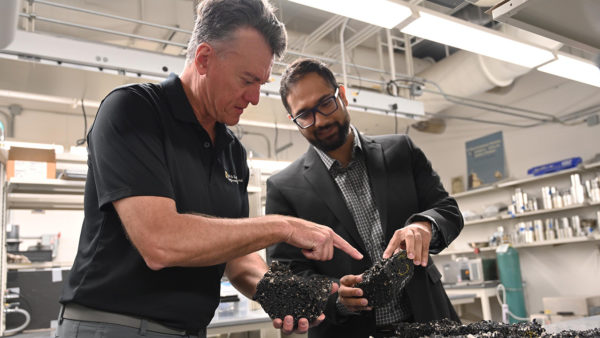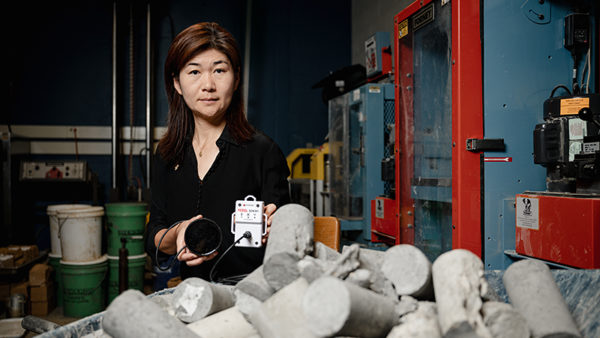A major Chinese investment in graphene research in the UK plans to deliver lighter, better performing aircraft and high-speed trains.
Beijing Institute of Aeronautical Materials (BIAM) and the National Graphene Institute (NGI) at The University of Manchester will carry out a five-year collaborative research project.
Initially the research will focus on making aircraft components from graphene – the world’s thinnest, strongest and most conductive material – which could make planes fly higher and use less fuel.
A longer-term goal would be to replace carbon fibre with graphene, which constitutes much more of an aircraft’s structure, the University of Manchester said.
In a joint statement today the institutes said research will focus on composites with enhanced performance in the field of mechanical, electric conductive and thermal conductive behaviour, as well as the compatibility of graphene and the matrix materials.
The Chinese funding is thought to be worth up to £3m, reports Manchester Evening News.
As well as aircraft, the research could have an impact on high-speed trains and industrial equipment to replace traditional materials.
Graphene has been included in the latest Chinese five-year plan as the country develops its domestic civil aerospace industry.
The project, which will run until 2020, will involve joint research on graphene projects, strengthening of the ties in graphene technology and the exchange of personnel between Beijing and Manchester.
According to the statement, the joint research project is expected to involve UK aerospace companies.
Image: An Air China A330-243 Airbus taking off from Munich Airport (Julian Herzog/Wikimedia Commons)










